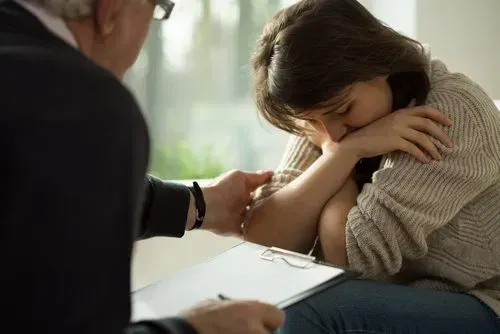Adolescent and Teen Therapy
As children move through the stages of development, they are faced with different challenges and problems. Often, these are unfamiliar and scary, and they do not know where to turn. No matter what the family dynamic, children can suffer through the pressures and stressors, feeling as if they have nowhere to turn.
Adolescent therapy can be beneficial to your child if they have any of the following symptoms or warning signs:
Learning disorders (ADD/ADHD)
Difficult learning or focusing
Acting out
Violence
Vandalism
Theft
Bed wetting
Regression in capabilities
Loss of interest in friends or activities
Changes in eating habits
Changes in sleeping habits
Eating disorders
Teen pregnancy
Unusual sexual behavior
Sudden changes in mood
Skipping school
Depression
Feeling hopeless
Crying for no reason
Complaining of headaches or stomachaches more frequently
School stress, family stress, developmental stress, and situation stress may be impacting your child. It is important not to ignore these warning signs and to treat things as soon as you realize the issue at hand. Leaving your child’s circumstances untreated can be detrimental and debilitating, and even irreversible.
Overview of Adolescent Therapy
Many different types of therapy can help your child through this tough time.
If you prefer a one-on-one situation, Individual or Analytic therapy might be the most effective. These therapy arrangements allow time for the therapist to get to know your child, build trust and rapport with your child, and allow your child to open up and disclose their problems, feelings, emotions, and responses. This kind of therapy is much more effective for older children and teens, as younger children might have trouble vocalizing and explaining their issues.
Play therapy is a great alternative for young children. Play therapy encourages a natural setting rather than a stuffy therapy atmosphere. Play therapy engages your child by playing games, singing songs, playing with toys or dolls, using puppets, and drawing or painting. By engaging in these activities, your adolescent therapist will have time to analyze your child’s responses and behaviors while also encouraging them to talk and communicate through the props. Play therapy is very effective as it allows young children to build trust in their counselors, and think of them as friends rather than therapist.
Group and family therapy might also be appropriate for your situation.
Group therapy is a group of children, led by an adolescent therapist, who will discuss their problems. Doing this in a group setting allows your child to see that there are others suffering through the same things he or she is dealing with. Group therapy also allows the opportunity for your child to learn social cues and skills, anger management techniques, and coping mechanisms. Sometimes, being around others that are in the same position is enough therapy. It allows your child to step away from their own situation, and take a new perspective.
Family therapy is often used with adolescents in conjunction with individual therapy. Family therapy allows the opportunity for the family, in part or whole, to meet with the therapist. This will help understand the family dynamic, communication methods, and issues within the unit. The adolescent therapist might encourage family members to participate in their typical dynamic so he or she is able to decipher the family dynamic, or might use games in order to engage the family and have everyone participate. Family therapy is important because the child is not suffering alone. Often, parents are stressed about their child’s situations, and siblings might also feel the tension. Building effective communication skills among the family is important, so that the child may feel as though their family understands them more.
Adolescent therapy, using any of the above methods, provides the opportunity for the therapist to help your child achieve his or her highest potential and well-being. This is important because without addressing the issues at hand and effectively working to resolve them, your child’s situation will only worsen, festering and growing, until they explode. Adolescent therapists break down your children’s barriers, attempting to gain trust and rapport, and analyze the problems, the reasoning behind the problems, and the hesitance in changing the situation. Then, together, your child and the adolescent therapist can help determine a plan of success and healing. With your help, adolescent therapy becomes a long lasting tool for you and your loved ones to use for a lifetime.
Adolescent therapy can also help your child identify their own feelings and emotions, open up about their problems, and create real-world solutions to improve their situation. Mental illness or behavioral problems or disorders can be very detrimental to your child’s health, and the well-being of your entire family.
Don’t hesitate. Call us now at 859.338.0466
or contact us today
We have many experienced therapists who can help your child onto the right track toward healing. We can alleviate your child’s problems and return your family to normal.
Check out our Counseling Process section in order to prepare for your visit. Contact us to schedule a session.
- Darby Creek Lexington, KY 501 Darby Creek Road, Lexington, KY, United States
- Duval Street Location Lexington, KY 1092 Duval Street, Lexington, KY, United States
- Frankfort, KY 105 Diagnostic Dr, Frankfort, KY 40601, United States
- 1043 Center Dr, Richmond, KY 40475, United States 1043 Center Dr, Richmond, KY 40475, United States








